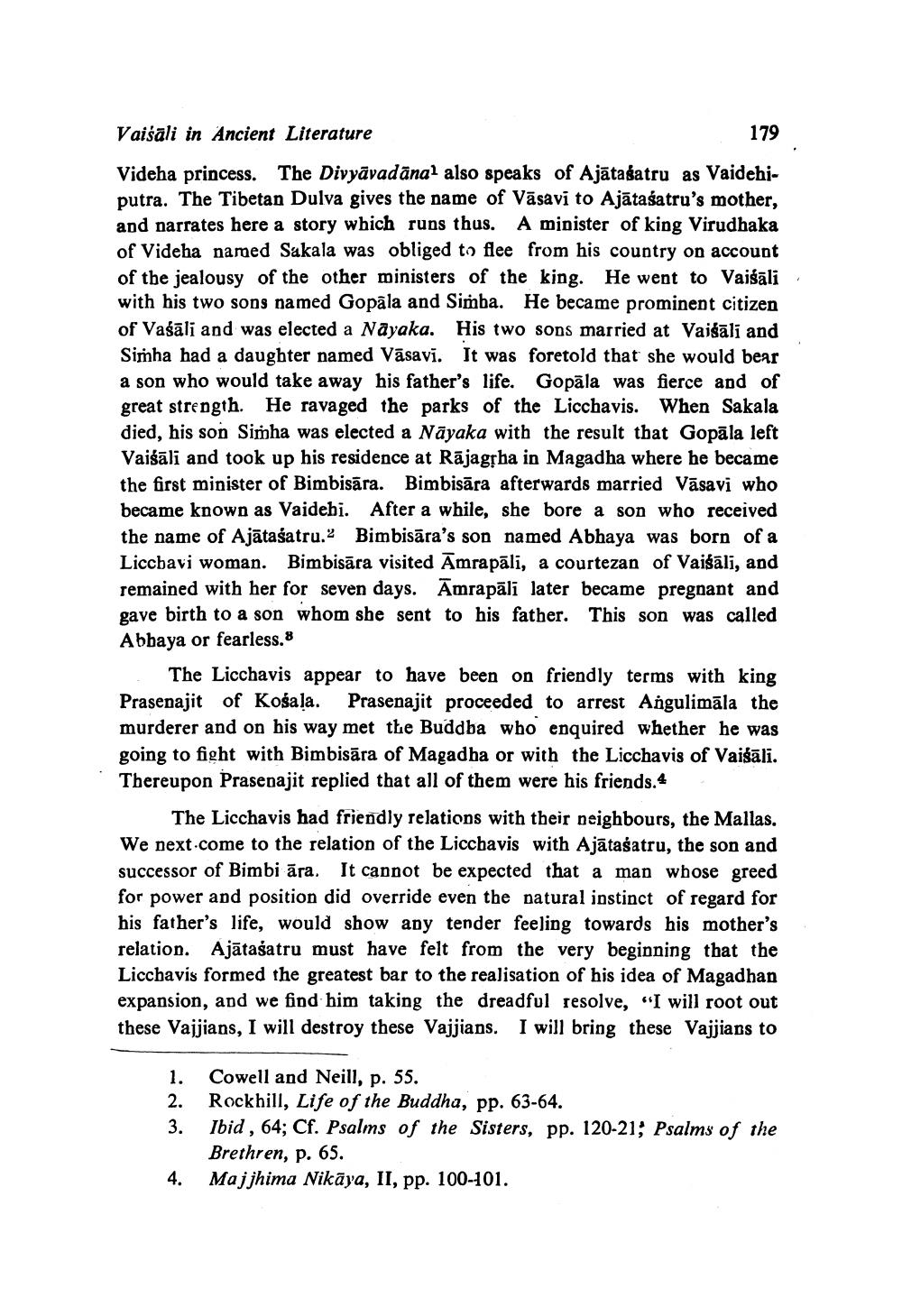________________ Vaisali in Ancient Literature 179 Videha princess. The Divyavadanal also speaks of Ajatagatru as Vaidehiputra. The Tibetan Dulva gives the name of Vasavi to Ajatasatru's mother, and narrates here a story which runs thus. A minister of king Virudhaka of Videha named Sakala was obliged to flee from his country on account of the jealousy of the other ministers of the king. He went to Vaisali with his two sons named Gopala and Simba. He became prominent citizen of Vasali and was elected a Nayaka. His two sons married at Vaigali and Simha had a daughter named Vasavi. It was foretold that she would bear a son who would take away his father's life. Gopala was fierce and of great strength. He ravaged the parks of the Licchavis. When Sakala died, his son Simha was elected a Nayaka with the result that Gopala left Vaisali and took up his residence at Rajagpha in Magadha where he became the first minister of Bimbisara. Bimbisara afterwards married Vasavi who became known as Vaidebi. After a while, she bore a son who received the name of Ajatasatru.2 Bimbisara's son named Abhaya was born of a Liccbavi woman. Bimbisara visited Amrapali, a courtezan of Vaisali, and remained with her for seven days. Amrapali later became pregnant and gave birth to a son whom she sent to his father. This son was called Abbaya or fearless.8 The Licchavis appear to have been on friendly terms with king Prasenajit of Kosala. Prasenajit proceeded to arrest Angulimala the murderer and on his way met the Buddba who enquired whether he was going to fight with Bimbisara of Magadba or with the Licchavis of Vaigali. Thereupon Prasenajit replied that all of them were his friends.4 The Licchavis had friendly relations with their neighbours, the Mallas. We next.come to the relation of the Licchavis with Ajatasatru, the son and successor of Bimbi ara. It cannot be expected that a man whose greed for power and position did override even the natural instinct of regard for his father's life, would show any tender feeling towards his mother's relation. Ajatasatru must have felt from the very beginning that the Licchavis formed the greatest bar to the realisation of his idea of Magadhan expansion, and we find him taking the dreadful resolve, "I will root out these Vajjians, I will destroy these Vajjians. I will bring these Vajjiaps to 1. 3. Cowell and Neill, p. 55. Rockhill, Life of the Buddha, pp. 63-64. Ibid , 64; Cf. Psalms of the Sisters, pp. 120-21; Psalms of the Brethren, p. 65. Majjhima Nikaya, II, pp. 100-101. 4.




